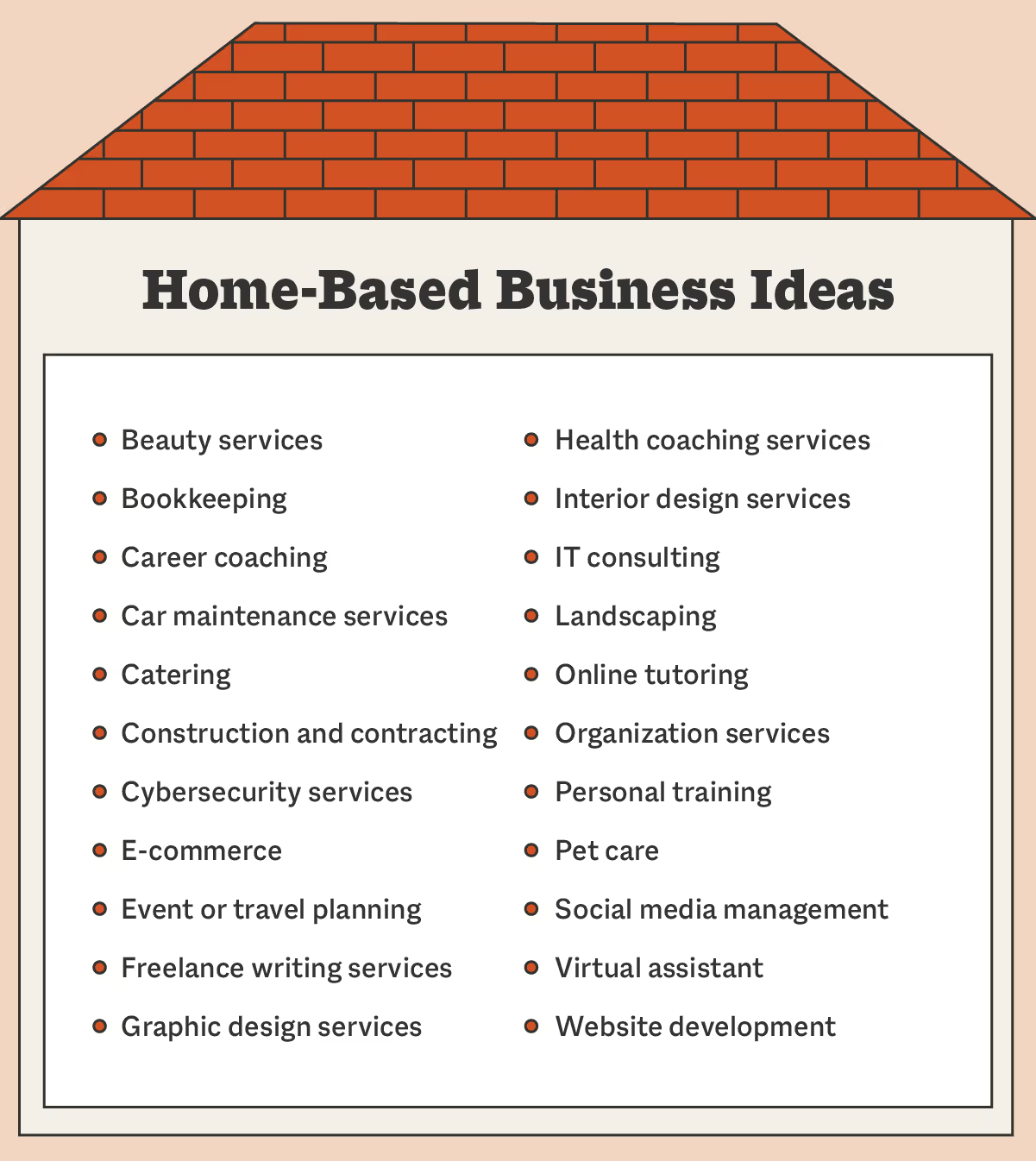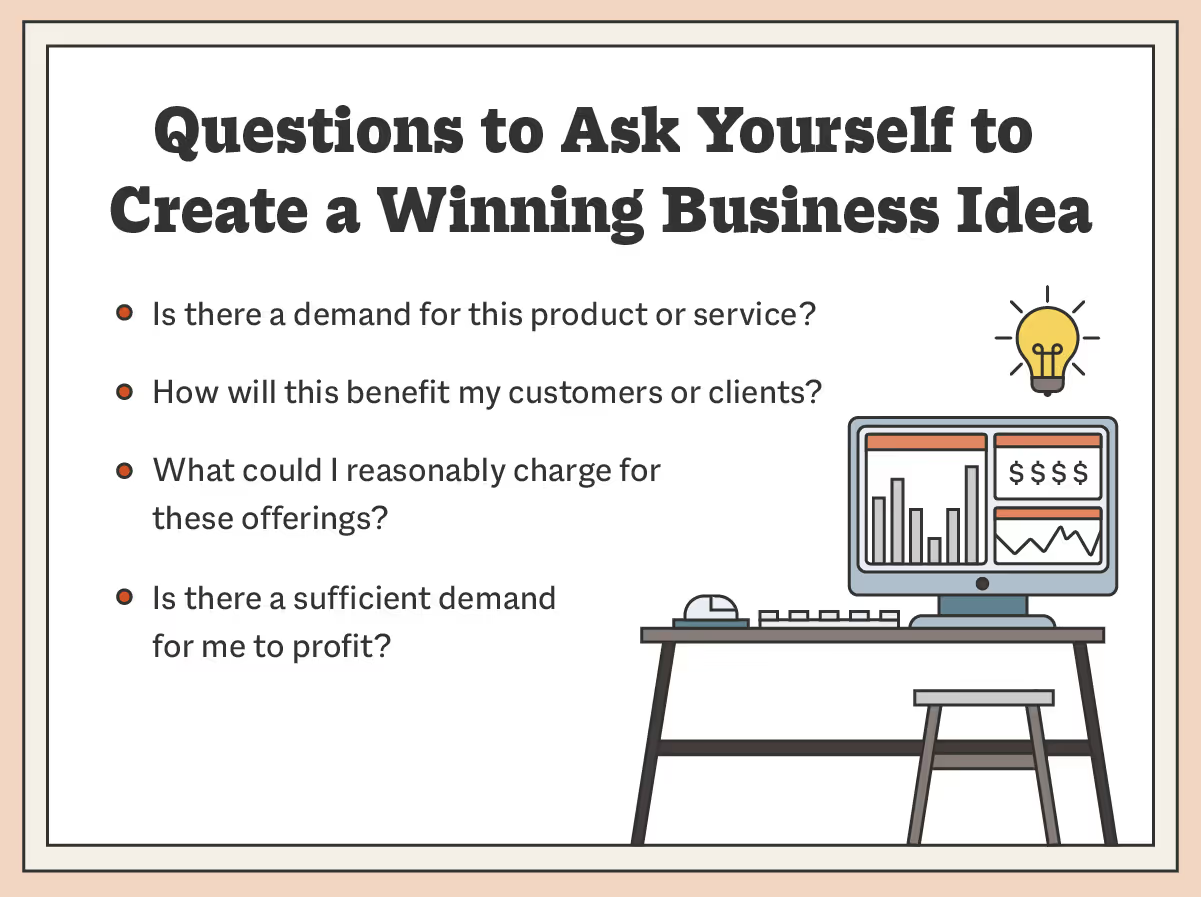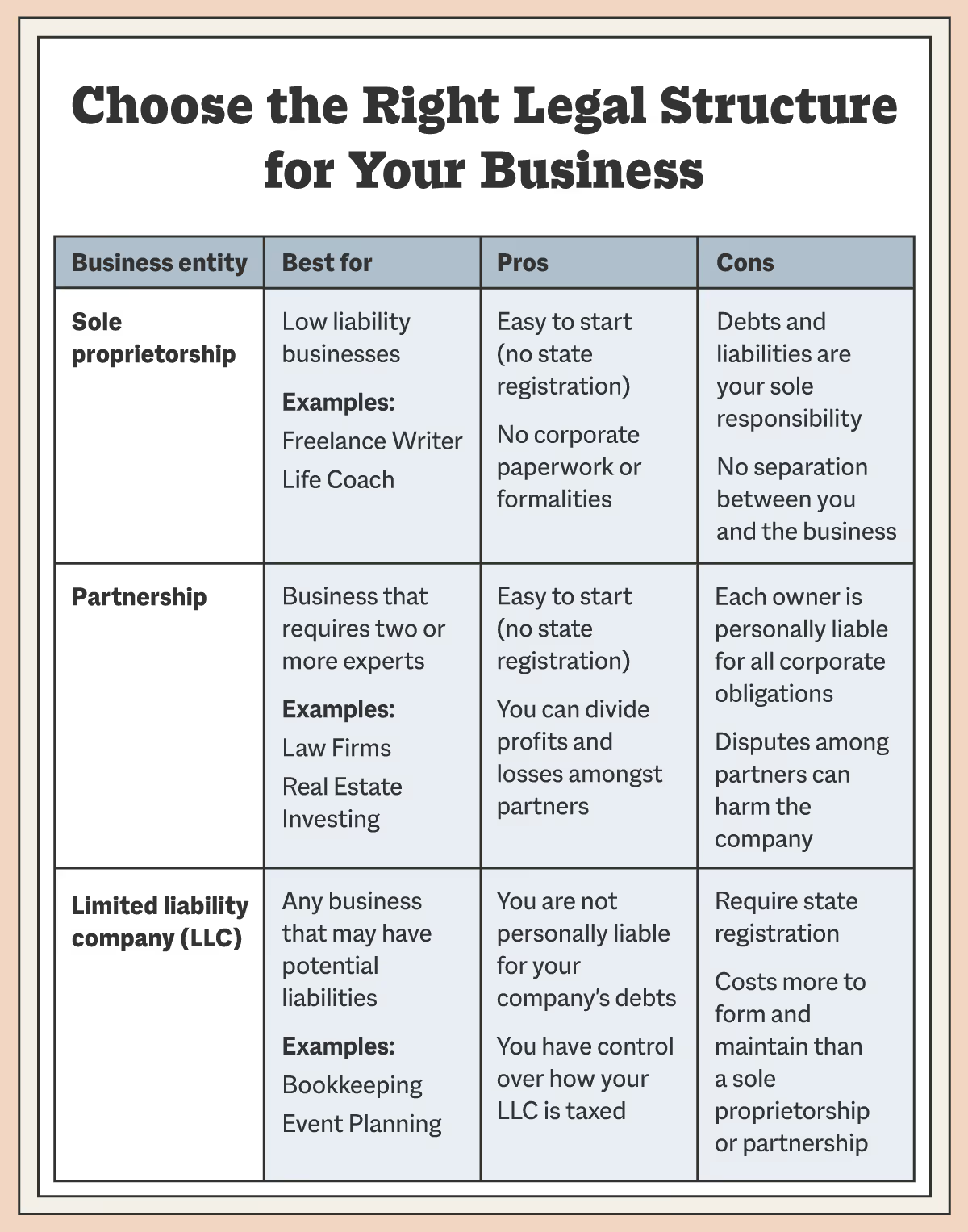How to Start and Run a Business From Home in 6 Steps
How to Start and Run a Business From Home in 6 Steps

If you have an entrepreneurial spirit, you’ve probably considered starting and running a business from home. Although starting your own business from home can seem daunting, most business success stories begin with small home-based firms.
Consider Amazon, which began in a garage and has grown to become the world's largest online retailer. If that isn't enough motivation, the Small Business Administration estimates that 50% of all businesses in the United States are run from home.
With that being said, if you have a promising small business idea worth pursuing, you shouldn’t be afraid to start your own home-based business. Check out this guide on how to start your own small business, including tips for running a successful one from home.
What kind of business can I run from home?
In this day and age, if you have a computer and access to the internet, you can run just about any business you can think of! Check out this list of some of the most popular businesses you can run from home:
- Virtual assistant
- Freelance writing services
- Graphic design services
- Website development
- Bookkeeping
- Personal training
- Social media management
- Beauty services
- Decluttering or organization services
- Event or travel planning
- Cybersecurity services
- Online tutoring
- Catering
- Pet care
- Wellness or health coaching services
- E-commerce
- Landscaping
- Interior design services
- Car maintenance services
- Construction and contracting
- Career coaching
- IT consulting

How to start a small business from home
Despite the difficulties you may face as a small business owner, today's entrepreneurs are overwhelmingly excited about becoming their own boss.
In fact, a report by American Express OPEN Small Business Monitor, 81% of business owners say their happiness is due to being an entrepreneur. In addition, 94% of entrepreneurs say they are happy with their lives.
Join the entrepreneurial lifestyle by following these steps to kick-start your home business today.
1. Come up with a winning business idea
The first step in your business journey is to come up with a winning business idea. Ideally, you’ll want to pursue something that you feel passionate about and enjoy doing.
However, passion can only get you so far. You’ll want to make sure that the venture you pursue meets the needs of a target market. If you don’t have a solid market in mind, your business won’t make enough money to survive in the long run.
If you're stuck for ideas, consider a problem that irritates you, no matter how big or small it is. Is there any way you can help solve this issue?
Observing existing businesses could be another good place to start. Are there any products or services currently on the market that could be improved?
While you are pondering all the possibilities of your next home-business idea, make sure you have an answer for these questions:
- Is there a demand for this product or service?
- How will this benefit my customers or clients?
- What could I reasonably charge for these offerings?
- Is there a sufficient demand for me to profit?
If your answers to these questions indicate the potential for success, then you can move on to writing a business plan.

2. Write a business plan
Every business starts with a sound plan. Once you determine what products or services you will provide, you’ll need to solidify the aim of your business and define quantifiable targets and goals.
Writing a business plan is one of the most time-consuming aspects of learning how to start a small business at home, but it's critical to your operation’s potential growth and progression.
Your business plan should include all of the information you need to prepare for running your business from home. Although there are various approaches to drafting a business plan, you should include the following:
- An executive summary
- An overview of your business
- A market analysis
- A description of your product or service
- A marketing and sales plan
- A financial plan and projections
By completing this step, you'll be able to build on the decisions you made from the beginning and think more deeply about how your business will work in the long run. Your business plan may evolve as your company grows, but it is the foundation on which your business will be built.
3. Choose a business entity
Now that you have a business plan in place, it’s time to start thinking about what business entity to choose for your new company.
The business you run from the comfort of your own home should be backed up with a legal structure. If you're not sure which entity to choose, here are a few options.
Sole proprietorship: This is the most basic type of business entity and the easiest to set up. If you establish a sole proprietorship, that means you are solely liable for all of the company's profits and debts.
General partnership: This business entity is a partnership owned by two or more individuals. With a general partnership, all business decisions, profits, and losses are shared equally among the partners.
Limited partnership: This type of entity is a partnership where only one partner has control of operations and the other partner(s) contributes to and receives part of the profits.
Limited liability company (LLC): An LLC is a hybrid structure that allows owners and partners to minimize their personal liability while still benefiting from the tax and flexibility benefits of a partnership.

4. Check legal requirements and register your home business
It's a good idea to verify your state and local requirements whenever you start a new business. Some states will demand a company license or permit, and failure to comply with these criteria could result in a fine.
You also may need to look into local zoning restrictions depending on the type of business you plan to establish. Check if there are any other regulations that could influence your business once you've picked a legal structure and met your state's registration requirements.
If you decide to register your business as an LLC or partnership, or plan to hire employees in the future, you’ll also need an Employer Identification Number (EIN). This is a federal tax identification number that will verify your business. Check the IRS website to find out if you need an EIN or easily apply for free — it only takes a few minutes!
5. Separate your finances
Once you’ve established your business entity and registered your business, you should open a business bank account to help you separate your business and personal finances. Your business bank account will be used to manage any money that comes into your company, as well as to pay anyone that works for you such as employees or suppliers.
When you open a business bank account, you should set up a business credit card. A business credit card can assist you in establishing business credit and can be used for any business-related activities, making tax-filing season much easier.
If numbers aren’t your thing, then it’s not a bad idea to hire an accountant or invest in automated accounting software to assist you with your finances. Doing so can help make bookkeeping and taxes a breeze so you can focus on other aspects of your business.

6. Come up with a marketing plan
One of the most essential parts of running a successful business is a proper marketing plan. Even if your offerings are top-notch and you’ve set yourself up for success in the previous steps, your business won’t take off unless you let the market know about it.
A marketing plan will outline how you plan to get the word out about your new business. It typically includes:
- Business summary: A summary of your business and its mission statement
- Business initiatives: A list of your business and marketing goals
- Customer analysis: A description of the industry you plan to sell to and your buyer persona (age, location, title, pain points, etc.)
- Competitor analysis: A list of your competitors' strengths and weaknesses, as well as any gaps that you may be able to fill (price, positioning, market share, etc.)
- SWOT analysis: A list of your company’s strengths, weaknesses, opportunities, and threats
Once you’ve completed this process, you can create a marketing strategy which describes how your business should approach the market. Think about what your business offers your target market that your competitors aren't already offering them.
Top tips for running a successful home business
Even if you've completed all of the steps to start a home business, the learning process will continue as you begin to actually run it. Check out these top tips for running a business from home so you can continue to be successful.
Invest in business insurance
While it may not be one of your top concerns, investing in business insurance can be critical in limiting risks and protecting your personal assets. It is your responsibility as a business owner to invest in the appropriate insurance coverage.
Naturally, what is "right" for your business will differ significantly from what is "right" for another company. Read our article on what business insurance covers to help you find the right policy for you.
Create a business website and social media profiles
Creating a website and social media profiles is one of the most effective strategies to build and promote your brand's presence and help build better personal connections with your customers.
A business website and social media will make it easy to communicate with clients and customers, allowing them to discover more about who you are and what you do and easily reach out for additional information. Once you’ve selected your business phone number, add it to your social media and website.
To drive organic traffic to your website and convert leads into customers, focus on creating optimal landing pages and posting relevant and informative content on social media and blog pages.
Choose the right online tools
Depending on the type of business you start, you'll almost certainly need to set up a virtual workspace to keep everything running smoothly. Tools like video conferencing, project management software, and cloud computing make running a home business more practical and feasible.
You’ll also want to stay up to date with the latest small business technology trends to find the best tools to help your business succeed.
Always strive to grow
No matter how prepared you are at the beginning of your business venture, you’ll always run into new obstacles or opportunities. In order to be successful, you should strive to grow and be open to learning new things.
Seek new information and fresh ideas by reading the latest news about your industry, attending webinars, and most importantly business networking. You’d be surprised how many new opportunities arise by connecting with other professionals in your industry.
Invest in virtual support
Once your business starts to take off, you’ll most likely need to outsource some help to better manage all of the incoming calls and inquiries you’ll receive. The last thing you want is to miss out on potential leads because you couldn’t respond in a timely manner.
Services like those offered by Smith.ai, such as virtual receptionists, live-staffed chat, and outsourced sales development, help you boost efficiency and prevent distractions so you can focus on other business matters.
If you are a B2B company, check out our guide to B2B sales outsourcing to find out everything you need to know about outsourcing your sales.

Allow Smith.ai to help your home business succeed
Running a small or solo business from home is no easy task, but it's well worth it if you're serious about realizing your dream of being your own boss.
With our committed virtual receptionists who handle everything from 24/7 phone answering to appointment booking and more, Smith.ai is dedicated to helping small businesses grow and succeed! We've worked in a variety of industries and can help you manage a profitable home-based business.
To learn more about ways Smith.ai can support your business (whether you operate from home or not), book a free consultation!
Sources: Small Business Administration | Business Wire | IRS 1, 2
Take the faster path to growth. Get Smith.ai today.
Key Areas to Explore

Your submission has been received!














.svg)



